
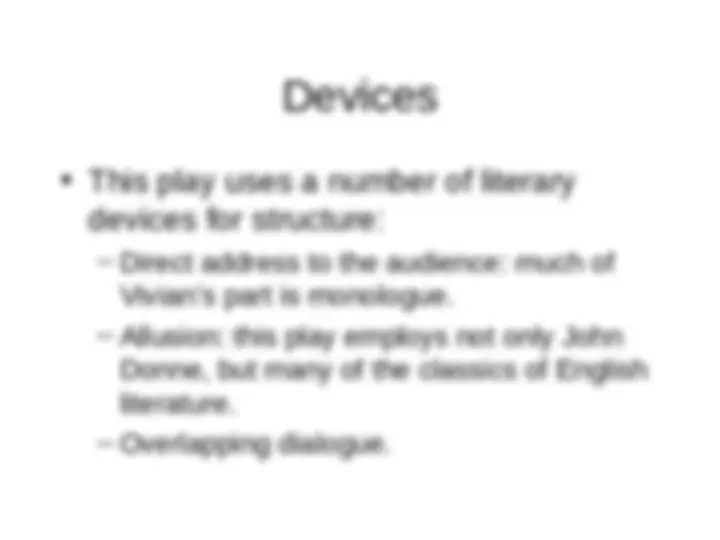
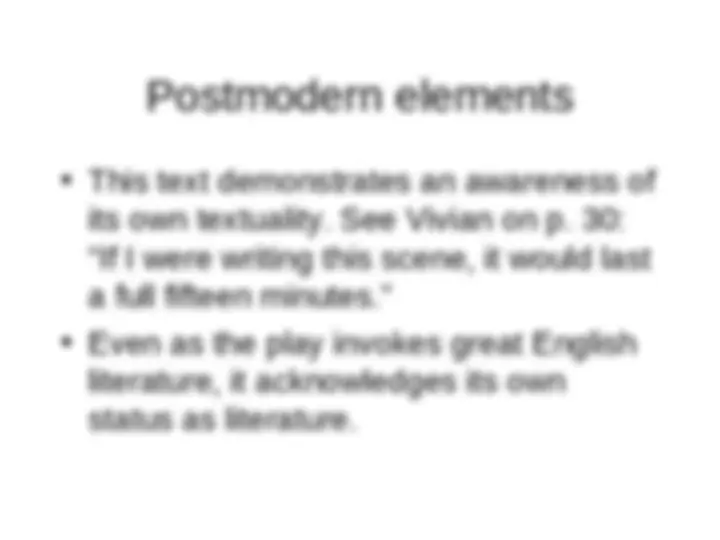
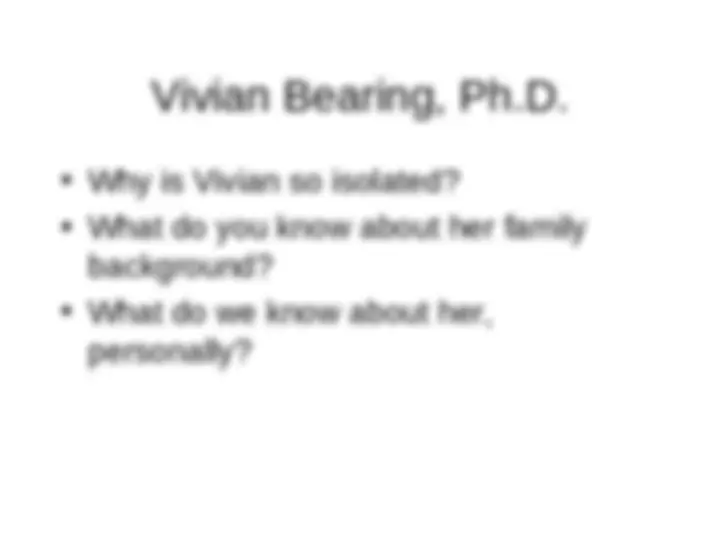
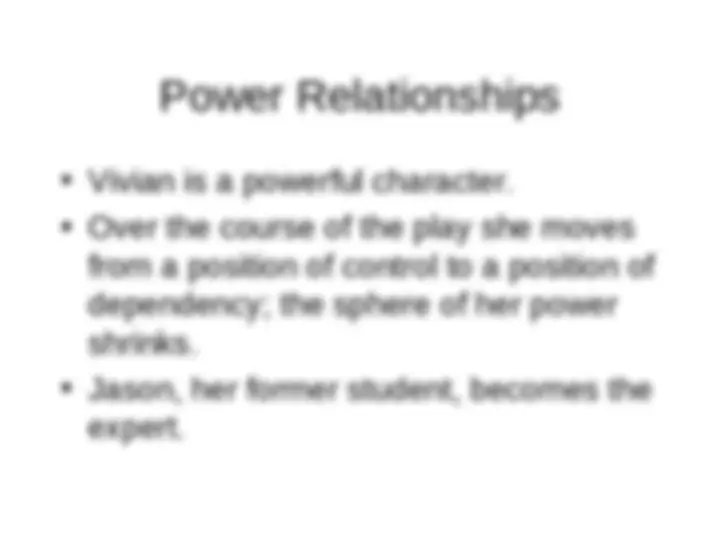
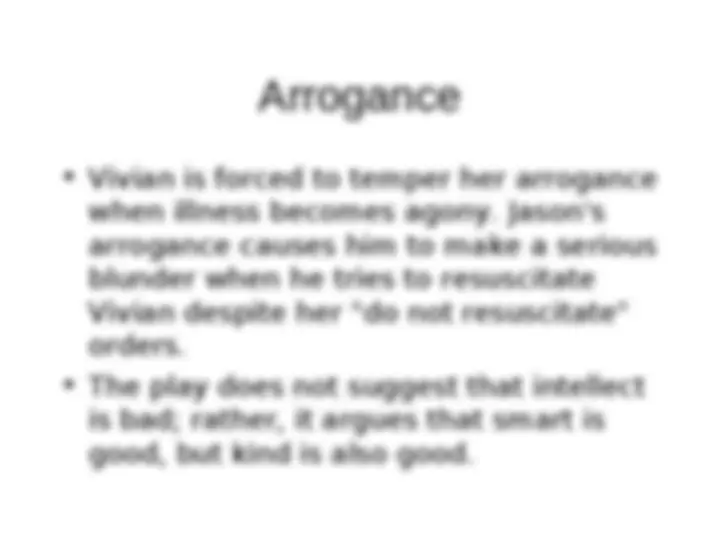
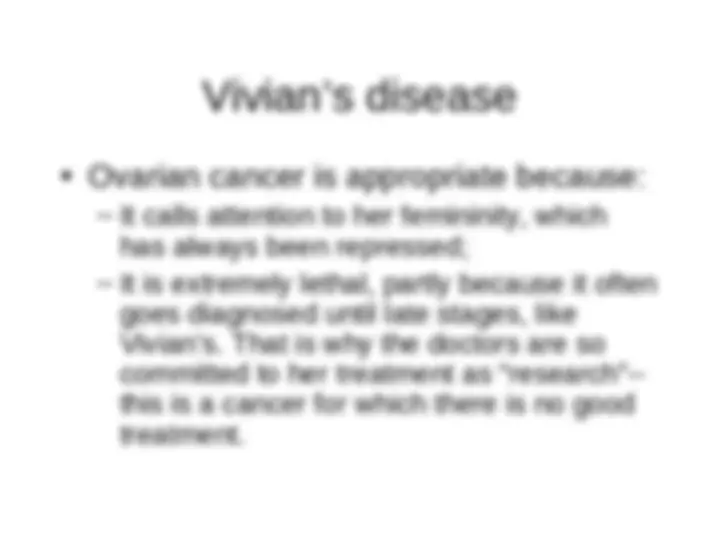
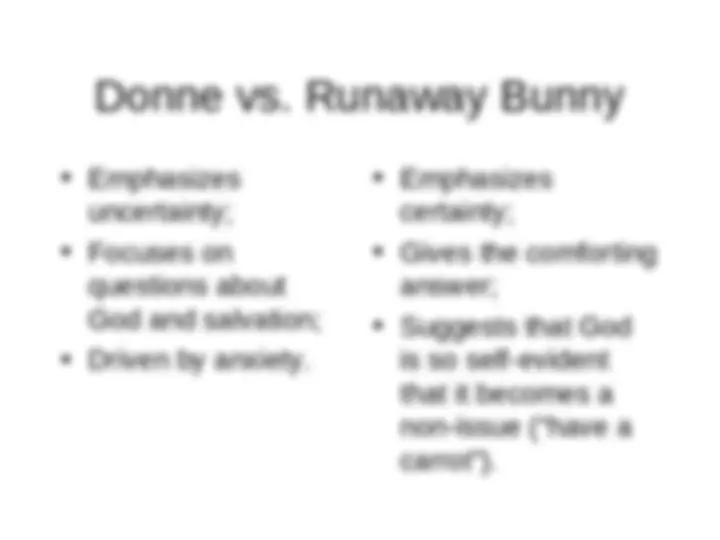
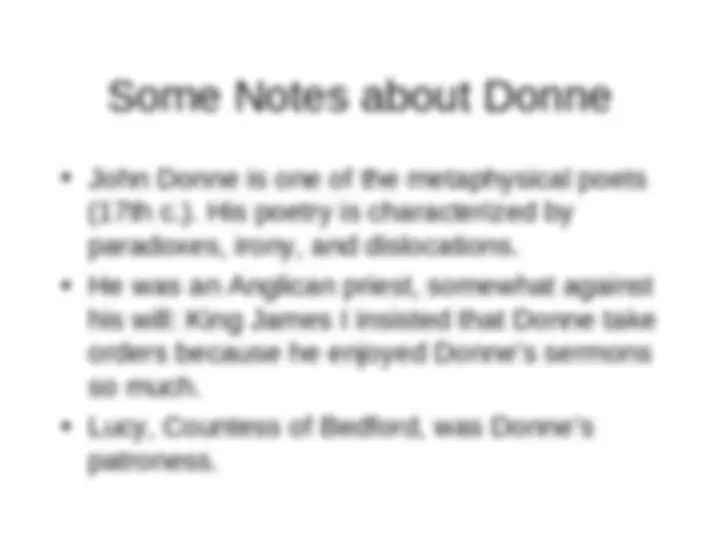
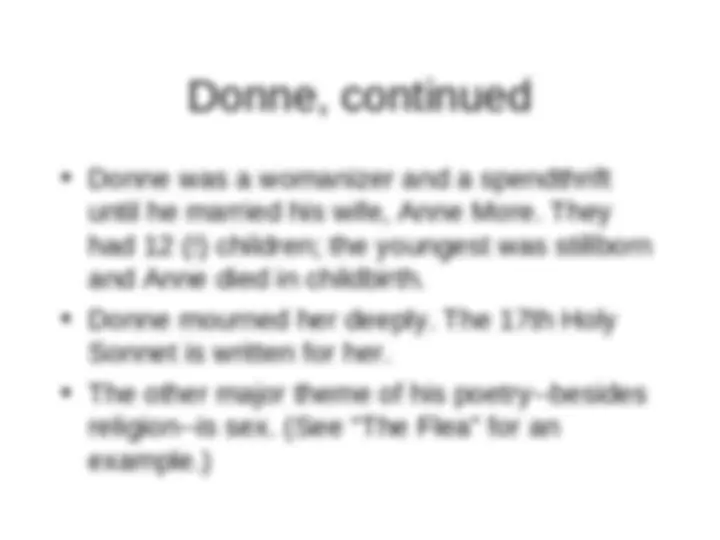



Study with the several resources on Docsity

Earn points by helping other students or get them with a premium plan


Prepare for your exams
Study with the several resources on Docsity

Earn points to download
Earn points by helping other students or get them with a premium plan
Community
Ask the community for help and clear up your study doubts
Discover the best universities in your country according to Docsity users
Free resources
Download our free guides on studying techniques, anxiety management strategies, and thesis advice from Docsity tutors
Wit is a pulitzer prize-winning play by margaret edson that explores the life of vivian bearing, a sixth-grade social studies teacher turned professor, who is diagnosed with ovarian cancer. The play employs various literary devices and postmodern elements, and delves into themes of power relationships, intellect, and compassion. Vivian's journey from a position of control to dependency, and her struggle to reconcile her intellect with her humanity, are at the heart of this thought-provoking and emotionally resonant work.
Typology: Study notes
1 / 18

This page cannot be seen from the preview
Don't miss anything!










